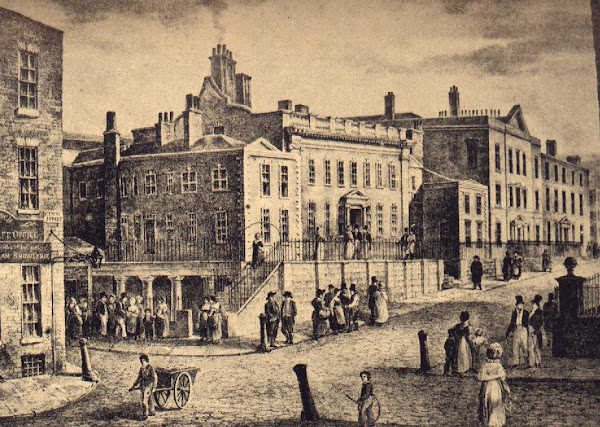Ainsworth was educated at Manchester Grammar School, but perhaps more importantly, came under the influence at the age of 12 (1817) of a young articled clerk in his father’s firm, named James Crossley. Five years his senior, with a formidable knowledge of Classical and English literature, Crossley had recently moved to the town from Halifax and was lodging at the Ainsworth family home.
The two soon formed a friendship, based initially on shared literary interests, which was to endure throughout their lives. As S.M. Ellis points out in his 1911 biography of Ainsworth, Crossley was: 'one who, by his wider reading and experience, could render material aid in consummating those fantasies and romantic ideas thronging in the fertile mind of the younger boy.' Although Ellis is describing a youthful relationship, the description remained accurate throughout the adult lives of the two men, with Crossley providing the research and background information to feed Ainsworth's imagination as a successful writer of historical romances.
The young Ainsworth was instrumental in organising amateur theatricals, which became part of life at King Street. A small theatre was set up in the basement of the house, and William and his school friends set about staging ambitious productions of the plays that he was already beginning to turn out with impressive speed. Most of the household became involved in one way or another, whether acting, designing and making scenery and costumes, or swelling the ranks of the audience.
Much of Ainsworth’s early work, in the form of essays, short stories and poems were signed with the name Thomas Hall (who had been a fellow schoolboy at Manchester Grammar School), and many of these were published by journals such as Blackwoods, The London Magazine and Arliss’s Pocket Magazine. The editor of this last journal was the recipient of one of the author’s youthful hoaxes. Under the name of Hall, the sixteen-year-old Ainsworth wrote to announce that he had discovered a seventeenth-century dramatist, named William Aynesworthe, introducing him(self) as follows:
'Of all the dramatic writers, one who has met with the least attention, and perhaps deserved the most, is William Aynesworthe. The chaste simplicity of his style, divested of all the ridiculous bombast which characterizes our modern writers; the elegant and rich fulness of his verse, combine to render him a writer worthy to be ranked among the first of our early dramatists.'
The writer goes on to offer specimens of six plays from the pen of his newly discovered genius, presumably resurrected from the King Street basement. Inevitably the editor spotted some anachronisms in the texts, but Ainsworth continued unabashed, offering the plays of ‘Richard Clitheroe’ to the New Monthly Magazine, with similar results. He was to use the surname Clitheroe in one of his most important novels some 30 years later, as we shall see.
Sunday, 28 October 2007
Subscribe to:
Post Comments (Atom)

No comments:
Post a Comment